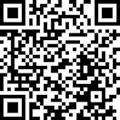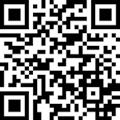MONASH MASTER OF SCIENCE IN PHYSICS
 monash.edu/physics
monash.edu/physics

 monash.edu/physics
monash.edu/physics
Physics explores the Universe at all scales of length, time and energy - from sub-atomic particles, such as the Higgs boson, to the large scale structure of the cosmos; from ultracold (nK) Bose gases to what happened at the Big Bang. In the search to understand the fundamental nature of space, time and matter, physics has provided the basis for many of our current technologies, and it will continue to play a critical role in 21st century society. Our specialised degree - the Master of Science in Physics - provides high level training and the research skills necessary to navigate a complex and rapidly changing technological world.
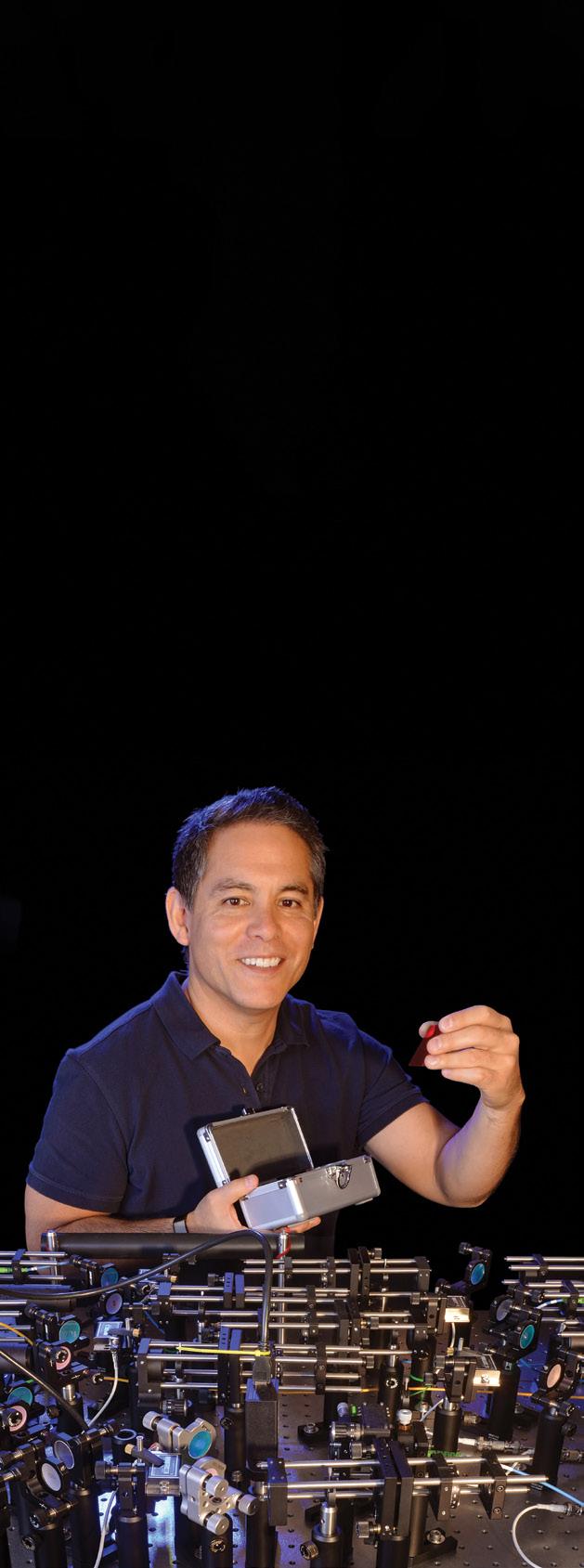
When you join Monash you will have access to world class researchers and facilities; you will be part of an outstanding research culture, which will support your career aspirations. In 2022 the School of Physics and Astronomy at Monash was ranked in the top 100 in the world - based on all major rankings (i.e., ARWU, QS and THE).
In the most recent national audit of research excellence (ERA 2018), the School received the highest rating of 5 (well above world standard) for all its research programmes, an overall rating of 5 and the highest rating for the impact of our research.
Our two year MSc programme comprises advanced coursework, chosen from a wide range of topics, and a major research project (carried out over two years) leading to a thesis in: observational astronomy, computational astrophysics, experimental physics, computational physics or theoretical physics.
Graduates with a master’s degree in physics are skilled in: empirical reasoning using big data, coding and AI/machine learning, computational and theoretical modelling, creative problem-solving, analytical thinking and scientific communication.
Our graduates have demonstrable research achievements, with their work being published in high impact journals. A list of current research projects can be found at: 8 monash.edu/science/schools/physics/honours/honoursproject/example-honours-projects
The skills you acquire in the MSc programme are highly sought-after by employers in a broad range of careers. Our graduates find employment in industry, scientific institutes, hospitals and government organisations. A master’s degree from Monash also equips you to proceed to a research Doctorate.
The School hosts the ARC Centre of Excellence in Future Low Energy Electronics Technologies (FLEET), which is exploring the next generation of electronics, based on revolutionary new ideas in topological states of quantum matter. For more information scan the QR code.
8 youtube.com/watch?v=U8YwObaW52g

YEAR 1
Six coursework units and a research project leading to an Interim Report.
Coursework units can be chosen from:
● Quantum Mechanics (compulsory)
● Electrodynamics and Classical Field Theory ● Statistical Mechanics
● Condensed Matter Physics
● Introduction to Nanophotonics & Meta-optics
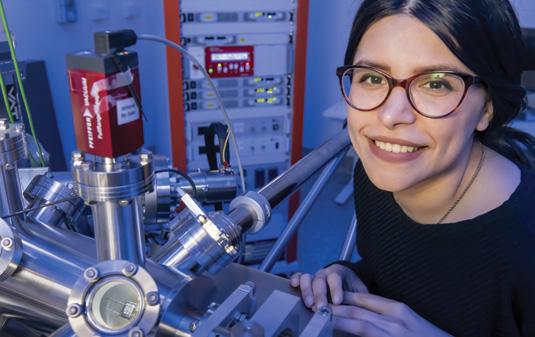
● X-ray Optics and Synchrotron Science
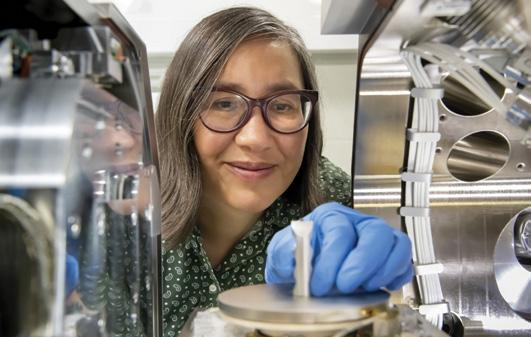
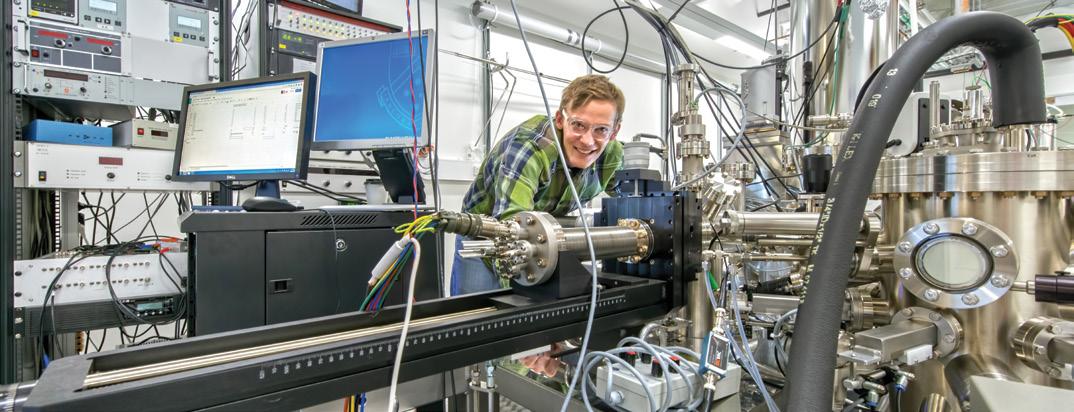
● Quantum Information Theory ● Quantum Field Theory
● General Relativity and Cosmology
● Data Analysis and Machine Learning
● Computational Astrophysics
● Advanced Observational Astronomy
● Stellar Astrophysics I
● Stellar Astrophysics II - Chemical Evolution of the Elements
● Dynamics of Exoplanets.
YEAR 2
Six advanced coursework units and a research project leading to an MSc thesis. Coursework units can be chosen from:
● Advanced Quantum Mechanics
● Quantum Fluids and Many-body Theory
● Advanced Quantum Field Theory
● Statistical Field Theory - Critical Phenomena and the Renormalisation Group
● Topics in Advanced Condensed Matter Physics
● Advanced General Relativity
● Special Topics in Contemporary Physics
● High Energy Astrophysics
● Radiation Astrophysics
● Order of Magnitude Astrophysics
● Magnetohydrodynamics
● Special Topics in Contemporary Astrophysics
● Additional topics may be chosen in advanced mathematics.
Master’s students are allocated dedicated office space in the $175M New Horizons Research Centre, where you will have access to state-of-the art research laboratories.
You will be provided with your own high-end computer and have direct access to high performance computing, 2D/3D visualisation facilities and technical support.
You will have the opportunity to interact with our world-class researchers, and the many international scientists who visit the School, including attending more than 90 research seminars, colloquia and workshops that the School runs each year.
The School is involved in major research centres, including:
• ARC Centre of Excellence in Future Low Energy Electronics Technologies (FLEET)

• ARC Centre of Excellence for Gravitational Wave Discovery (OzGrav)
• ARC Centre of Excellence in All Sky Astrophysics in 3D (ASTRO3D)
• Monash Centre for Atomically Thin Materials
• Monash Centre for Electron Microscopy
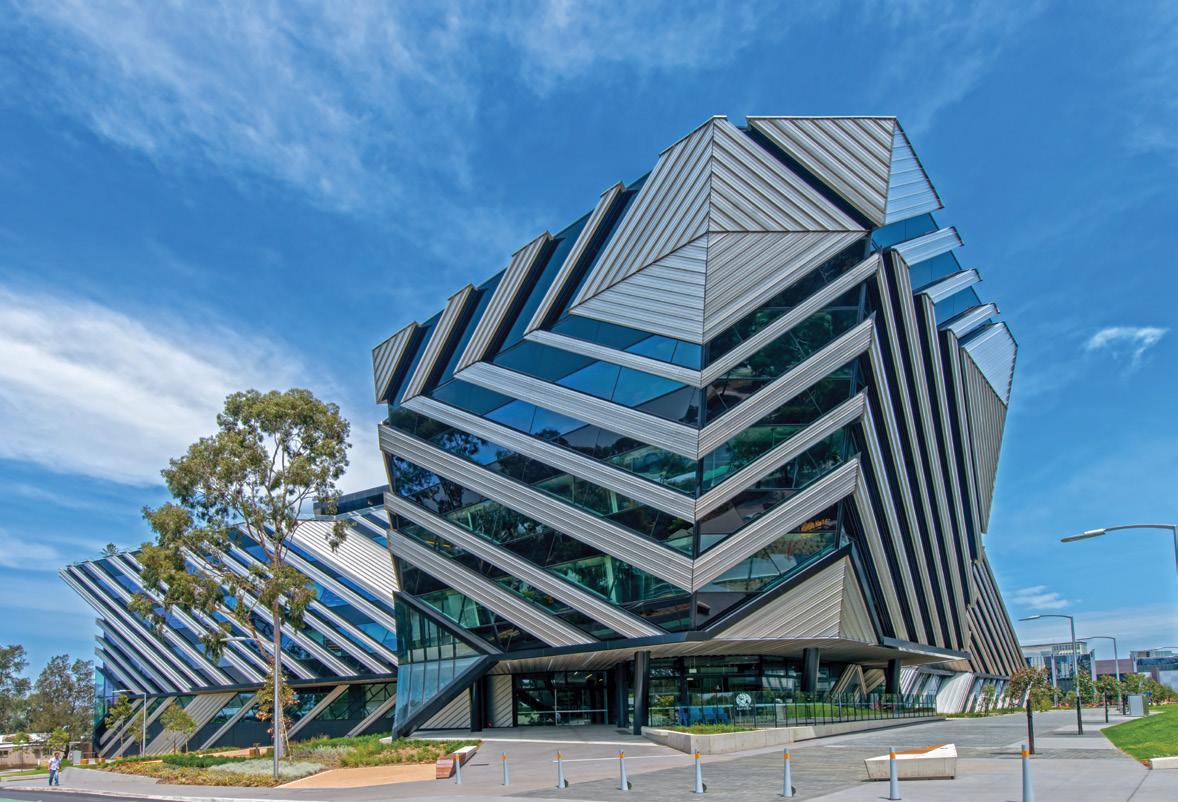
• Monash-Warwick Alliance in High Energy Particle Physics
The School also has access to many national and international research facilities, including: the Australian Synchrotron (located opposite Monash); international synchrotron facilities in Japan (SPring-8), Europe (ESRF) and the United States (ALS); the Large Hadron Collider (LHC) at CERN; the Melbourne Centre for Nanofabrication (located opposite Monash); neutron scattering facilities at ANSTO; Advanced LIGO in the United States; the European Southern Observatory (ESO); ALMA and the Joint Institute for Nuclear Astrophysics, to name but a few key partnerships.
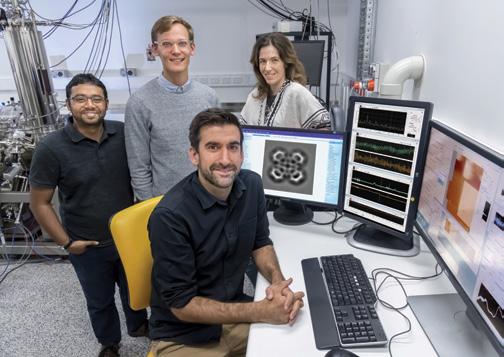 Agustin Schiffrin’s group in the New Horizons Research Centre. This laboratory houses scanning tunnelling microscopy/ spectroscopy (STM/STS) instrumentation. The group explores the two-dimensional states of quantum matter, aimed at developing novel materials and devices for light-harvesting applications in ultrafast and dissipationless electronics. Visit 8 fleet.org.au
Agustin Schiffrin’s group in the New Horizons Research Centre. This laboratory houses scanning tunnelling microscopy/ spectroscopy (STM/STS) instrumentation. The group explores the two-dimensional states of quantum matter, aimed at developing novel materials and devices for light-harvesting applications in ultrafast and dissipationless electronics. Visit 8 fleet.org.au
MONASH UNIVERSITY monash.edu FIND A COURSE monash.edu/physics FUTURE STUDENT ENQUIRIES Australian citizens, permanent residents and New Zealand citizens monash.edu/study/contact



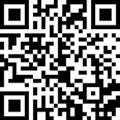
International students T Australia freecall: 1800 MONASH (666 274) T +61 3 9903 4788 (outside Australia) E study@monash.edu Wechat: MonashUniAus Youku: Monash 蒙纳士大学

